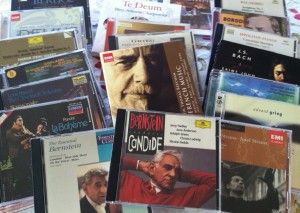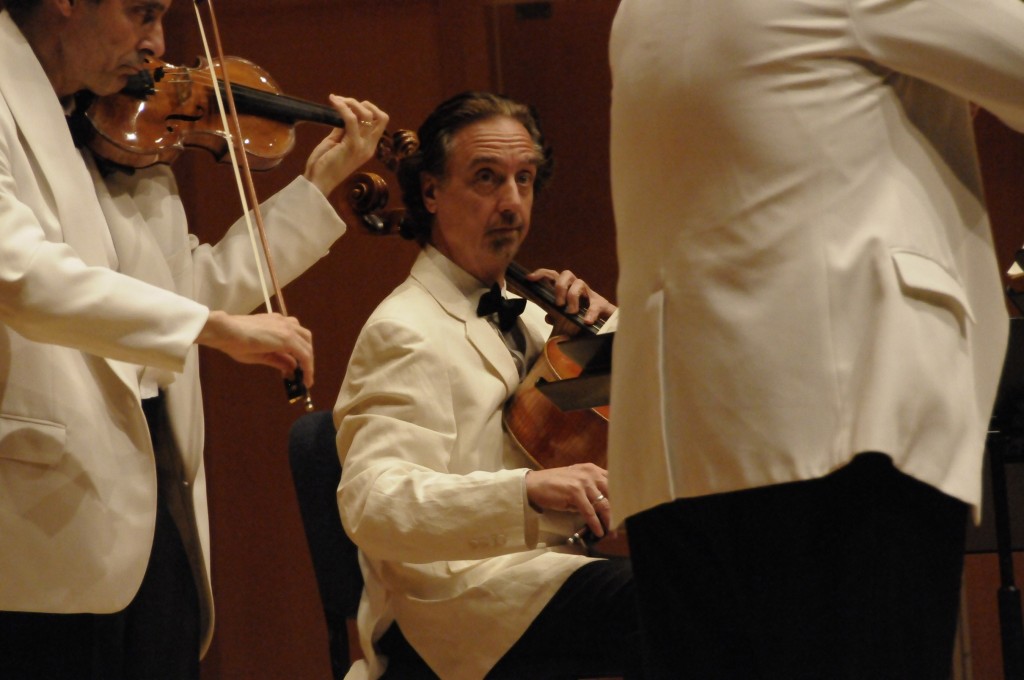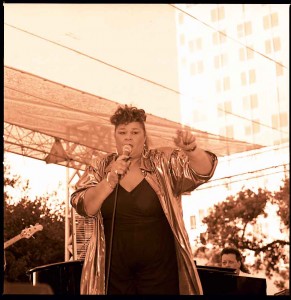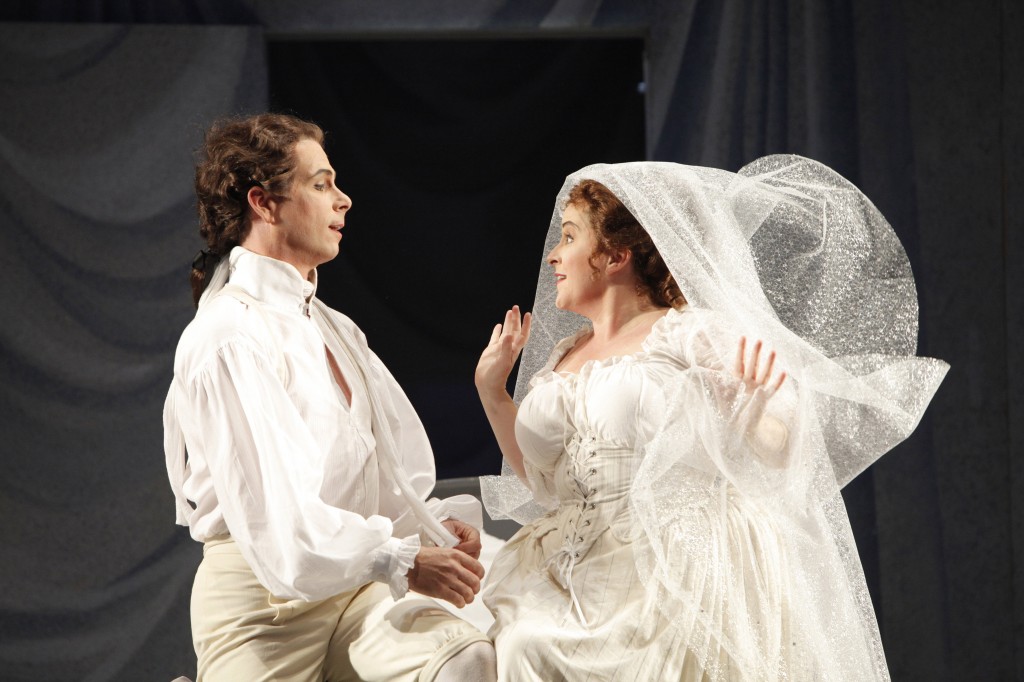The inimitable Doc Watson died today at age 89. He was an American original, partly by being a true American traditionalist. I love his music and my idea, at least, of who he was. I wrote the following piece on him for The Oregonian, where it ran on June 1, 1997. I’d change a few things if I were writing it today, but it’s still worth a look if you knew Doc’s music, or if you didn’t but wish you had:
By Bob Hicks
On Father’s Day, the deep past visits Portland. And maybe, as popular music seeks a way out of its morass of superstardom, the future will too. Because try as we might to pretend it never happened, the past is part of us, and it shapes what we will be.
 Thank goodness Doc Watson is helping to carry it.
Thank goodness Doc Watson is helping to carry it.
American music rarely sounds better than when Watson plays it. His easy-gliding voice is as fresh and sweet as the first bite of a mountain apple, and he is very likely the finest, most influential flat-top guitarist of his era.
He is, in short, a legend. But as far as popular musical consciousness goes, he is also, like the grand tradition of American optimism that he represents, in danger of fading away.
Semiretired since his son and partner Merle died in a tractor accident in 1985, Watson is about to make his first Portland appearance in eight years. On June 15, two days after opening this year’s Britt Festivals in Jacksonville, he’ll play a barbecue picnic at Oaks Amusement Park. And he will carry on his aging and unassuming shoulders the strength and possibilities of time itself.
At 74, Watson is a bridge back to the sounds and ideals from which we sprang: Irish-Scottish folk ballads, African-American field songs, Delta blues, mountain-fiddling tunes from Saturday-night dances and back-porch gatherings, age-old lullabies, church songs, Civil War stories, railroad songs, even Tin Pan Alley tunes and rockabilly.
Good music comes from someplace, and Watson’s is redolent of community — of people who share experiences, outlooks, territories. The specific someplace most important in the forming of his music is the Southern hill country that produced scratch farmers, cotton pickers, coal miners and string bands.
Continue reading R.I.P.: Doc Watson, American original →

 This is a major bummer. I wrote about it for Oregon ArtsWatch in this piece,
This is a major bummer. I wrote about it for Oregon ArtsWatch in this piece, 
 Thank goodness Doc Watson is helping to carry it.
Thank goodness Doc Watson is helping to carry it. “Glass’s critics sometimes complain that the hypnotic repetitions of his music encourage listeners’ minds to wander. They’re right. But there’s attentive wandering and inattentive wandering, and when things work the way I suspect Glass wants them to the “checkout” stretches of an opera like Galileo Galilei are more like resonant doorways into parallel paths of contemplation. The music works on a subterranean level, freeing the receptive mind to explore fresh possibilities. That sort of openness to discovery, the kind of path that Galileo followed, is precisely what makes literalists nervous: If another idea becomes possible, what happens to what they believe? So the battle is joined: repress it, suppress it, stuff it back in the box.
“Glass’s critics sometimes complain that the hypnotic repetitions of his music encourage listeners’ minds to wander. They’re right. But there’s attentive wandering and inattentive wandering, and when things work the way I suspect Glass wants them to the “checkout” stretches of an opera like Galileo Galilei are more like resonant doorways into parallel paths of contemplation. The music works on a subterranean level, freeing the receptive mind to explore fresh possibilities. That sort of openness to discovery, the kind of path that Galileo followed, is precisely what makes literalists nervous: If another idea becomes possible, what happens to what they believe? So the battle is joined: repress it, suppress it, stuff it back in the box.
 While that’s led to a somewhat more relaxed sense of structure (oh, my goodness: is it midnight already?), the basics have been covered: boys showered, sheets washed, fruit or vegetables shoved down reluctant teenager’s plant-averse throat, same reluctant teen’s homework swiped at (eek! it’s finals week!).
While that’s led to a somewhat more relaxed sense of structure (oh, my goodness: is it midnight already?), the basics have been covered: boys showered, sheets washed, fruit or vegetables shoved down reluctant teenager’s plant-averse throat, same reluctant teen’s homework swiped at (eek! it’s finals week!). Japan has officially recognized the Gregorian-calendar dating system since 1873, which makes the official Japanese new year January 1. But traditionally the nation’s new year has followed the Chinese lunar calendar, and a sturdy tradition can outwit official proclamation for a good long time.
Japan has officially recognized the Gregorian-calendar dating system since 1873, which makes the official Japanese new year January 1. But traditionally the nation’s new year has followed the Chinese lunar calendar, and a sturdy tradition can outwit official proclamation for a good long time. Etta touched on blues and country and rhythm & blues and soul – pretty much most of the traditional popular song forms – and distinguished herself in all of them. She lived hard, on purpose, and sometimes fell over the edge, then scrambled back and added a little more of the scrape and grit she’d landed in to her already astonishing sound. “My mother always wanted me to be a jazz singer, but I always wanted to be raunchy,” she wrote in her memoir.
Etta touched on blues and country and rhythm & blues and soul – pretty much most of the traditional popular song forms – and distinguished herself in all of them. She lived hard, on purpose, and sometimes fell over the edge, then scrambled back and added a little more of the scrape and grit she’d landed in to her already astonishing sound. “My mother always wanted me to be a jazz singer, but I always wanted to be raunchy,” she wrote in her memoir. ©Portland Opera/Cory Weaver
©Portland Opera/Cory Weaver